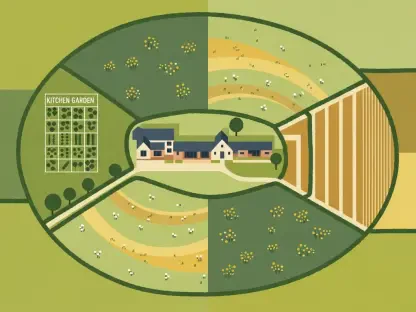In the heart of small-town development strategies lies a significant move by the Regional District of Okanagan-Similkameen (RDOS) board to waive $300,000 in development cost charges (DCC). These charges, typically levied to support essential infrastructure like sewers and water services, were suspended for a new 36-unit rental housing project spearheaded by South Skaha Housing in Okanagan Falls. This initiative specifically targets low-income tenants, ensuring all 36 units remain deeply subsidized and affordable, aligning with BC Housing’s terms. By alleviating the financial burdens surrounding essential service costs, the RDOS board is fostering an environment conducive to affordable housing developments, particularly within smaller and rural communities where such projects are needed but often financially unfeasible without subsidies. Development cost charge waivers like this are increasingly being recognized as instrumental tools for municipalities dedicated to enhancing community welfare while addressing affordable housing shortages.
Impact of DCC Waivers on Community Development
The decision to implement a DCC waiver reflects a broader trend among municipalities aiming to balance local infrastructure funding with social welfare advancement. For smaller towns, this means embarking on new pathways to promote sustainable and accessible housing without immediate fiscal gain. The waiver serves to ease capital costs, making projects that offer significant public benefits more financially viable and attractive to developers and nonprofit organizations. Indeed, the decision has sparked discussions among board members who weigh the potential losses in DCC revenue against the broader long-term benefits of increased affordable housing availability. Concerns were voiced regarding the implications for local residents and infrastructure funding, yet the waiver aligns with the Local Government Act, which enables such exemptions for not-for-profit housing. Through these waivers, towns can leverage their community plans to facilitate projects that align with their strategic goals for growth and public welfare, thus signaling a significant shift towards prioritizing community-focused development.
Long-term Benefits and Challenges
While the decision highlights progressive governance, it also underscores critical challenges such actions may pose. Forgoing DCC revenue can strain public resources, leading some community members and officials to express concern over precedent-setting and possible fiscal repercussions. Nonetheless, the RDOS board reaffirmed the necessity for collaboration in advancing housing projects that meet essential community needs while providing tangible benefits to residents. These efforts are bolstered by demonstrating administrative support alongside alignment with the Official Community Plan policy, ensuring developments are both strategic and beneficial. Ultimately, the decision embodies a commitment to focusing on long-term community enhancement over immediate financial considerations. Projects such as the South Skaha Housing initiative are integral in reshaping the housing landscape for low-income residents, thereby fostering more inclusive and vibrant communities.
Weighing the Potential of DCC Waivers
The RDOS board’s waiver decision exemplifies an evolving trend in public policy where the benefits of supporting non-profit housing developments are viewed as outweighing traditional revenue gains. By endorsing a waiver for the project, the board has taken a crucial step towards achieving long-term goals focused on social equity and economic development within smaller communities. The initiative highlights the implementation of tools advantageous for lower-income populations and reflects an understanding of the socio-economic impacts these waivers can leverage in guiding future development. Such decisions necessitate critical discussions that weigh public benefits against fiscal responsibilities, showcasing how leadership in smaller towns can cultivate an environment where economic hurdles are addressed through community-focused strategies, ultimately promoting more equitable living standards across the region.
Moving Forward with Community-Centric Strategies
A significant decision by the Regional District of Okanagan-Similkameen (RDOS) board exemplifies small-town development strategies—waiving $300,000 in development cost charges (DCC). These charges usually support infrastructure such as water services and sewers but were lifted for a new 36-unit rental housing project by South Skaha Housing in Okanagan Falls. This project is aimed at low-income tenants, ensuring all units are deeply subsidized and remain affordable under the terms set by BC Housing. By lowering financial barriers associated with essential service costs, RDOS is promoting a favorable environment for affordable housing projects, especially in smaller and rural communities where the need for such initiatives is high, but they often face financial hurdles without subsidies. Waivers like these are increasingly seen as vital tools for municipalities committed to boosting community welfare and addressing the pressing issue of affordable housing shortages.









